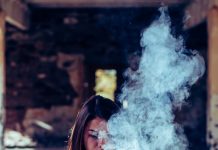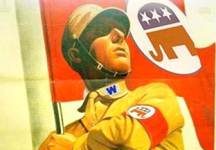
Newark, NJ — Those who knew Imamu Amiri Baraka, or at least his work, are well aware of the loss the world has suffered today. The brilliant and dedicated poet, playwright, critic and social activist passed at the age of 79 after falling ill over the Christmas holiday.
Easily one of the most vocal and controversial poets of our time, Baraka led a full life dedicated to art and activism. Born Everett LeRoi Jones on Oct. 7th, 1934 in Newark, N.J., Baraka was a gifted student, graduating from high school two years early to attend NYU and Howard University. Shortly thereafter Baraka served two years in the Air Force before being honorably discharged for studying communist literature.
Baraka then moved to NYC, attending Columbia University for his graduate work and quickly becoming engrossed in the Beat movement, meeting and working with the likes of Allen Ginsberg, William S. Burroughs, Jack Kerouac, Gregory Corso, Diane Di Prima, Frank O’Hara, John Ashbery, Gary Snyder, Barbara Guest, Charles Olson and William Carlos Williams, among a great many others — a veritable who’s who of internationally acclaimed avant-garde poets, writers and intellectuals, not to mention his revolutionary connections. Baraka would eventually go on to publish many of them in the poetry magazine Yugen, which he produced with his wife of five years, Hettie (Jones) Cohen between the years of 1960 and 1965. Baraka continued to publish throughout his life, too, ever an aficionado of small presses, even printing handmade collections of poems and essays from a small press he would use at his kitchen table.
In addition to Yugen, Baraka co-edited the literary newsletter The Floating Bear with Diane Di Prima in 1963, published his classic “Blues People“, and wrote his famed controversial play “Dutchman” for which he won the Obie Award in 1964. He wrote in his 1984 autobiography, “The Autobiography of LeRoi Jones“:
I can see now that the dramatic form began to interest me because I wanted to go ‘beyond’ poetry. I wanted some kind of action literature.
Always one to expand his own knowledge and understanding of the world around him, Baraka was larger than the Beat movement alone. His roots, interests, passions and everyday realities led him to new territories, associations and literary schools. His art changed and evolved over his life just as his social and political consciousness did.
After the assassination of Malcolm X in 1965, Baraka shifted to a more separatist stance and changed his name from Everett LeRoi Jones to Imamu Amiri Baraka, leaving his biracial marriage with Hettie Cohen. He moved to Harlem and soon married Sylvia Robinson (who later changed her name to Bibi Amina Baraka). Inspired by a trip to Cuba in 1960 as well as the Civil Rights Movement, Baraka founded the Black Arts Repertory Theatre and School that same year.
Simultaneously, Baraka’s work and socio-political awareness led him to the Black Arts and Power movements so wonderfully exemplified by the Black Panthers and such fabulous visionaries as Gwendolyn Brooks, Gil-Scott Heron, Nikki Giovanni, Eldridge Cleaver and Ishmael Reed. In a 2007 interview, he said:
[W]e wrote art that was, number one, identifiably Afro American according to our roots and our history and so forth. Secondly, we made art that was not contained in small venues. The third thing we wanted was art that would help with the liberation of black people, and we didn’t think just writing a poem was sufficient. That poem had to have some kind of utilitarian use; it should help in liberating us. So that’s what we did.? We consciously did that.
Perhaps it was that revolutionary edge that led Baraka to send trucks into Harlem carrying people and artists such as Sun Ra to perform poetry, dance and play music. Just as Malcolm X proclaimed, “By any means necessary,” Baraka used any means necessary to bring art and liberation to black people, and through that, worked to bring art and revolution to all of us. Remember that old self-evident line, so long as one is oppressed we all are oppressed? Baraka worked for the liberation of all.
As the 60s waned the 70s picked up the funk, Baraka became more deeply entrenched in numerous organizations working to strengthen and consolidate African American political consciousness. That work would continue throughout the rest of his life.
During Baraka’s extensive academic career over the years, he worked for the State University of New York-Stony Brook, Rutgers University, George Washington University, Yale University, San Francisco State University, Columbia, and the New School for Social Research.
Though he certainly got around, Baraka lived a great deal of his life in his hometown of Newark, where he remained both an active writer/performer as well as a savvy political force. He was named New Jersey’s second poet laureate in 2002, but the position was later eliminated due to his controversial poem, “Somebody Blew Up America“, which pointed toward the roles white people have played in bloodshed and tyranny throughout time, including a few lines interpreted as anti-Semitic. Baraka had refused to resign from the position so the state eliminated it.
Rarely does a single person contain such life, such magic, talent, and passion. Even more rarely does that same person devote his or her life to liberation and freedom. Fellow friends, poets and citizens there is no question that we have lost one of the great ones. Another icon is gone, but Amiri Baraka’s legacy will forever pop, dazzle and shine across the page, over the airwaves and satellites, mingling amongst the star dust shining above all those roman candles Kerouac wrote of so many years ago.
No doubt, Baraka was one of the mad ones. His illustrious awards include fellowships from the Guggenheim Foundation, the National Endowment for the Arts (NEA), a Rockefeller Foundation Award for Drama, a PEN/Faulkner Award, and the Langston Hughes Award from City College of New York.
When asked how he would define himself in a 2007 NPR interview, Baraka replied:
Well, I guess as a poet and a political activist most consistently. I’ve written in all genres… But, you know, I guess throughout all of that, the poetry is at the base of it.
Imamu Amiri Baraka’s full obituary can be read here.
May the machine gunners no longer need step forward some day… So long, friend.? The world thanks you.
(Film by Dylan Hock.)
Edited/Published by: SB





